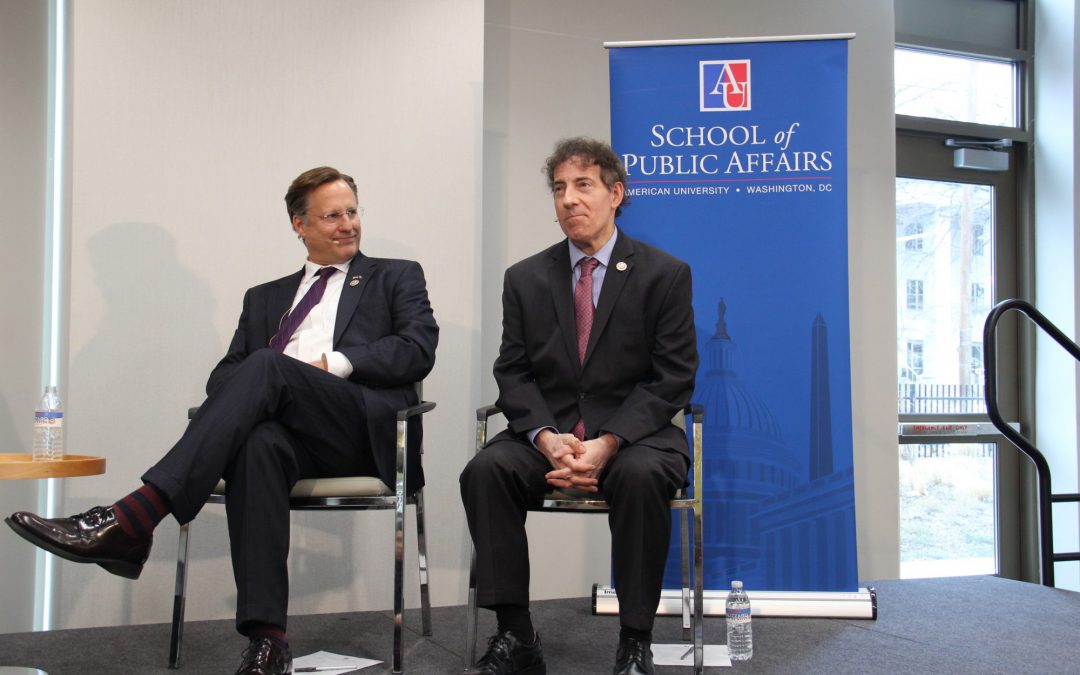WASHINGTON – Lawmakers and experts raised doubts on Tuesday that Republicans and Democrats can find common ground on President Donald Trump’s proposed $1.5 trillion infrastructure program during a conference at American University.
Trump unveiled the plan along with his proposed fiscal 2019 budget on Monday that calls for $4.4 trillion of spending in the coming year. The president’s plan for building new highways, bridges and other projects is controversial because it would provide only $200 billion in federal dollars over the coming decade while leaving it to private investors and states to come up with the rest.
Rep. Jamie Raskin, D-Md., said during the conference that the White House and Republicans were missing an opportunity to gain Democratic support for the plan by offering a paltry amount in federal assistance while also proposing to loosen environmental protections and permitting requirements.
“Our bridges are falling down. Our metro systems are eroding. The highways and roads need repair,” Raskin said. “We need a massive infrastructure plan, and we need to do it in a way that actually advances our environmental goals.”
Speaking about the prospects of bipartisanship under the Trump administration with conservative Rep. David Brat, R-Va., Raskin called the current climate in Congress a “time of tremendous political fluidity” as legislators respond to social and economic pressures on key issues like infrastructure, immigration, tax policy and more.
Brat said that while he believes it is possible to garner bipartisan support for the president’s infrastructure plan, it will be an uphill climb for legislators to broker a fair deal as they debate the level of federal dollars Congress would be willing to invest in revitalization projects nationwide.
“The problem is that people think there’s free money in D.C.,” Brat said. “But if you go to the states and ask for $1 trillion for infrastructure, they’ll immediately get nervous because they’re broke and are required to balance their budget by law.”
Kevin DeGood, director of Infrastructure Policy at the progressive think tank Center for American Progress, said that Trump’s plan is almost certainly not going to elicit cooperation between parties, and that it places pressure on state and local governments to fund various projects.
“The plan includes huge attacks on foundational environmental laws, and while in theory both sides agree that we need infrastructure investment, this administration’s position places the burden of taxes on state and local governments,” DeGood said, adding that the plan would exacerbate regional economic inequality and political divisions.
Raskin said that despite Republican concerns, federal contributions to state and local government infrastructure initiatives could go a long way in making necessary repairs.
“I think we need something like a Green Deal for America where we’re putting real money in the way that great Democratic presidents like Franklin Delano Roosevelt did and great Republican presidents like Eisenhower, who built the highway systems,” Raskin said. “That’s always been a bipartisan thing, but we’ve not seen the administration come forward with a meaningful infrastructure plan.”

